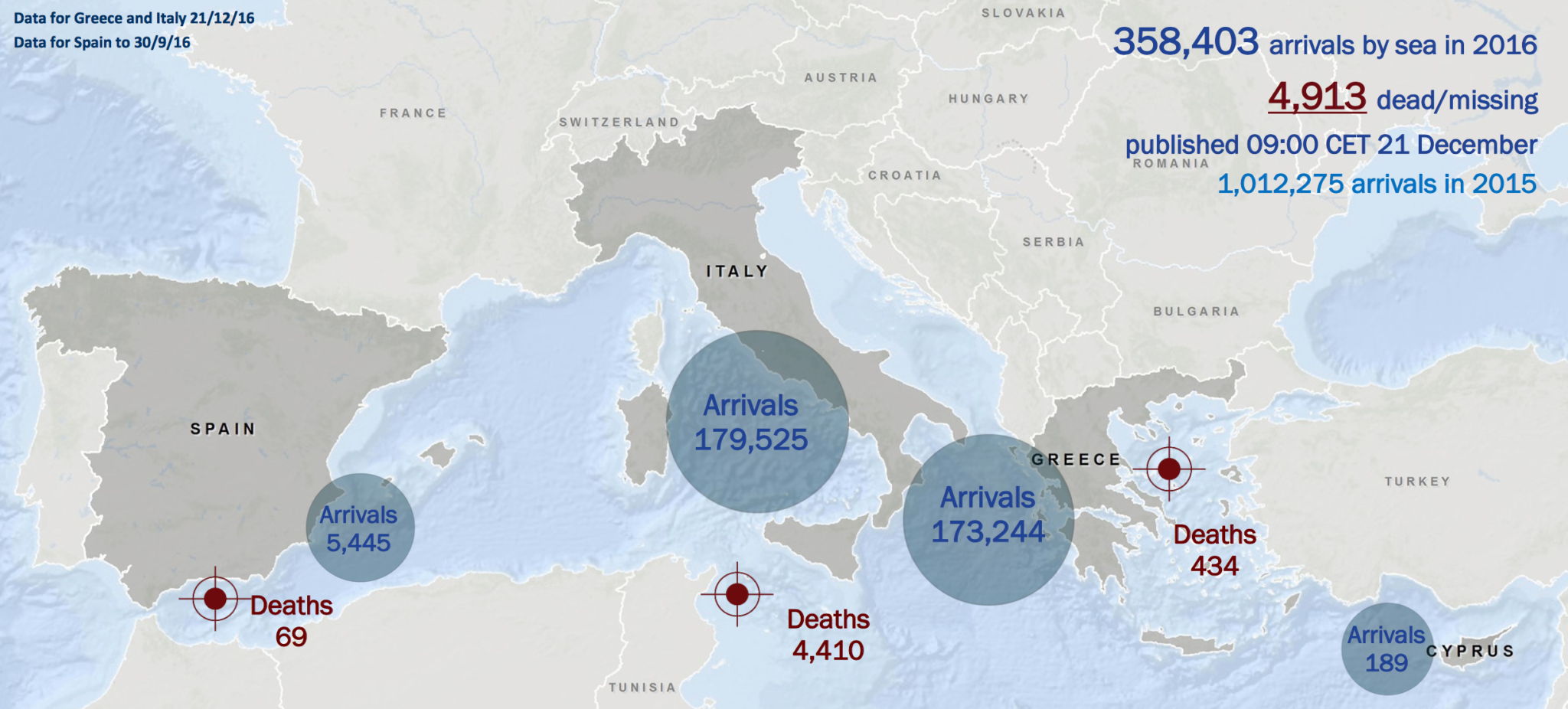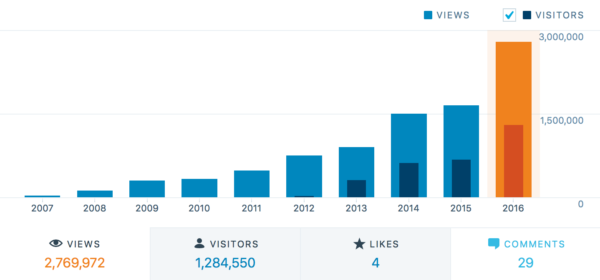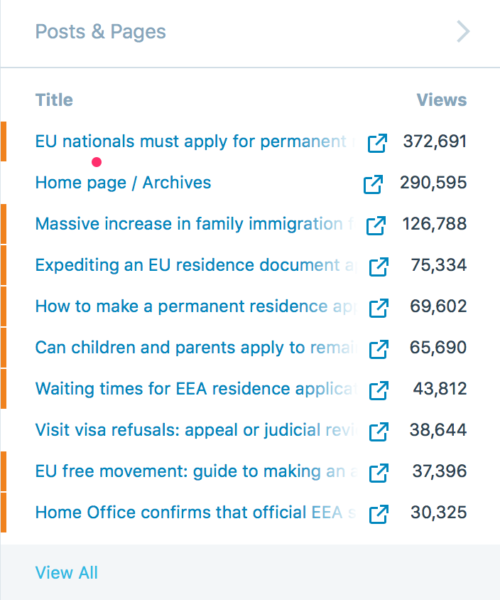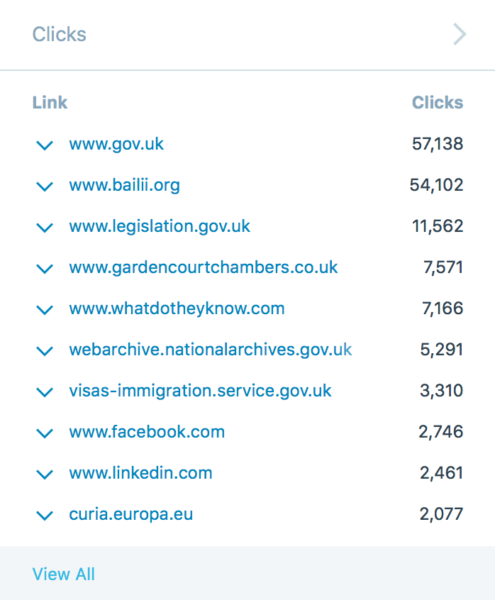- BY Colin Yeo

Free Movement review of 2016
THANKS FOR READING
Older content is locked

A great deal of time and effort goes into producing the information on Free Movement, become a member of Free Movement to get unlimited access to all articles, and much, much more
TAKE FREE MOVEMENT FURTHER
By becoming a member of Free Movement, you not only support the hard-work that goes into maintaining the website, but get access to premium features;
- Single login for personal use
- FREE downloads of Free Movement ebooks
- Access to all Free Movement blog content
- Access to all our online training materials
- Access to our busy forums
- Downloadable CPD certificates
2016 has not been a good year for free movement the concept. Non coincidentally, it has been a busy year on Free Movement the website. The response of migrants and their families to harsh rules that would break them apart is not simply to abandon their hopes and abandon the lives they have built. They resist and they fight. That is not to say they win, though.
On the Free Movement website
Here on Free Movement we underwent a major redesign at the end of the year. The intention has been to fit more content into the same space as well as modernising the look. One of the main functional changes is the introduction of new auto-updating Hub pages on key different topics such as EU free movement, asylum and detention.
A monthly membership subscription is now available at only £20 plus VAT per month, larger group memberships are available of 20 and 50 places and group leaders will soon be able to manage their own users properly.
Meanwhile, driven largely by Brexit, readership has exploded to 2.8 million page views this year from 1.3 million visits to the website. That is an 85% increase on last year. The email list now stands at 13,000, an increase of over 100%. There are now over 1,200 members of Free Movement, a 20% increase. Just over 1,700 ebooks were sold, an increase of 300%.
I find these numbers simply astonishing. Free Movement started out as a simple blog featuring occasional, ascerbic updates on UK immigration law. It has grown into something much, much bigger.
This year has also seen the launch of legal services on Free Movement, with a video link advice service and an application checking service.
Brexit
The defining events of 2016 were undoubtedly the referendum campaign on the UK’s membership of the European Union and the outcome of the vote to leave. I would count these as two separate but closely related events.
The Leave campaign was toxic, unpleasant, dishonest and played on and thereby magnified people’s fears of migrants. This was bad enough and was always going to have disastrously divisive consequences whatever the result. Arguably the tone and content of the Leave campaign would have had far worse consequences had the vote been to Remain, in fact. Even though Leave won we still see judges characterised as “enemies of the people” and the violent, medieval language of treachery and treason being deployed.
The result itself clearly means that the UK must leave the European Union. The referendum should never have been held — referenda are incompatible with Parliamentary sovereignty and it was a tactical device to manage the internal divisions of the Conservative Party — but it was and the result must be respected. The result does NOT mean that the UK must leave the single market, abolish free movement rights for UK citizens as well as EU citizens and hobble British services and industry by erecting barriers to trade with our closest neighbours and biggest market.
Hopefully we will in 2017 start to see at least the outline of the UK’s negotiating position for our future relationship with the EU. Then we will start to get an idea of how bad the damage to our economy, society and standing in the world is likely to be. Once this becomes clearer, the Phoney War will be over and the consequences of Brexit on inward investment, unemployment, house prices, interest rates and more will become clearer as the markets and employers respond.
Home Office colonises Government
2016 also saw the passing of the Immigration Act 2016 and the elevation to Prime Minister of Theresa May, our long-standing anti-immigration Home Secretary. Essentially, the Home Office has taken over the machinery of government.
The hostile environment created by the Immigration Acts 2014 and 2016 has reached its tentacles into more and more areas of everyday life. The white middle classes can luxuriate in their earlier defeat of ID cards as an infringement of their civil liberties. The hostile environment, though, requires those affected to possess a British passport as a de facto ID card in order to access services including renting a property, getting married, getting a job and having a bank account. The worst affected are those on low incomes and ethnic minorities, the young and women. It is a fundamentally un-British “papers, please” ID card scheme in all but name, and even worse than that it is an overtly discriminatory one affecting only certain segments of the population.
The Home Office and Theresa May prioritise physical security of the citizen over civil liberties, the rule of law, education, culture, economic development or the UK’s place in the world. These different but potentially complementary concerns of different ministers and departments were previously kept in balance by a broadly neutral Prime Minister and heavyweight cabinet ministers. Think David Cameron and then not just Theresa May but also George Osborne, Michael Gove, Nicky Morgan and Oliver Letwin.
These days we are left with just Theresa May.
Refugee crisis
Meanwhile, the refugee crisis in the Mediterranean continued, claiming a record 5,000 lives this year, sons, daughters, mothers, fathers, brothers and sisters all. Not “cockroaches” as some would have us believe. Drowning is an awful, horrible way to die, and these deaths were unnecessary. Provision of safe passage and better provision in the regional refugee camps would reduce or eliminate the desperate need which drives hopeless refugees to undertake the hazardous journey.

The UK response to the crisis did improve in 2016. It took a photograph of a drowned toddler to achieve that. We are still not doing anything like enough but a total of 4,414 people have now been given sanctuary in the UK under the Syrian Vulnerable Persons Resettlement Scheme and a further 715 people under the Gateway Protection Programme and Mandate Scheme.
Looking ahead
So what does 2017 hold in store?
We should finally get some idea of the extent to which EU free movement is likely to be preserved or jettisoned. Or, rather, we will at least hopefully get some idea of what the UK Government hopes it can achieve; it is for the rest of the EU to decide whether to agree to whatever those aspirations might be. So far the Government has been unwilling to say anything at all about this critical issue or its work on redesigning domestic immigration policy more generally. Aiming at membership of the EEA or a similar deal with the EU would largely preserve free movement rights for UK and EU citizens. It is axiomatic that demanding imposition of full UK domestic immigration rules would end free movement rights entirely.
There is also the potentially separate question of what happens to the 3 million EU citizens in the UK and the 1.2 million UK citizens in the EU. If free movement rights are broadly preserved then this issue largely falls away. If the UK opts to impose full immigration controls then it would still be possible to preserve EU free movement rights for existing residents, as proposed in a well informed and thoughtful House of Lords Justice Committee report.
The coming year may be an interesting one for domestic immigration policy as well as EU free movement. It is thought that the Home Office is working on a completely new immigration system for the country, although no details whatsoever are yet publicly available. I should know better by now, and this reflects a failure of imagination, I am sure, but I struggle to see how a new system might be worse than the existing one, in technical and legal terms at least. The complexity of the current system is mindblowing even for lawyers and judges and utterly indecipherable to the ordinary citizen. If the work is being done by the same people responsible for the way the Points Based System has evolved, Appendix FM and Appendix V, though, there will certainly be plenty of future work for the immigration lawyers.
I do not know what to say about the refugee crisis. It looks like it will worsen in 2017 given that the number of dead is rising rather than falling, Asad seems close to victory in key theatres of the civil war, there is no credible threat of intervention other than by the Russians and the human rights situation in countries such as Iran, Afghanistan and Eritrea was already getting worse rather than better even before President Trump takes office.
The year ahead is not one to look forward to. Migration is woven into the fabric of all of our lives, whether we know it or not. We will all feel the squeeze as central government imposes ever greater restrictions on this most basic of human freedoms.
Can we do better? Can we swim against this seeming sea change? I think we can (Liberalism is failing. It does not have to.). But we need to change the way we have been arguing and campaigning. We need to stop engaging with the authoritarians and zealots whom we can never convince, move on from their chosen territory, pick our own ground on which to make a stand, start putting forward a positive case and focus on the majority of persuadable people who occupy the middle ground. The recent responses (here and here for example) to a very clever and utterly fantastical Change Britain report promising streets paved with gold in the event of a Hard Brexit offer an example of how to lose, in my view, not how to win.
We can look to Detention Action for how to do this well. They have built a coalition opposed to indefinite administration detention by asserting values and campaigning relentlessly on the misery and waste it causes. It is no coincidence that immigration detention has started to fall for the first time.
If you are interested, take a look at this fascinating piece predicting Trump’s victory from July 2016:
First, don’t think of an elephant. Remember not to repeat false conservative claims and then rebut them with the facts. Instead, go positive. Give a positive truthful framing to undermine claims to the contrary. Use the facts to support positively-framed truth. Use repetition.
Second, start with values, not policies and facts and numbers. Say what you believe, but haven’t been saying. For example, progressive thought is built on empathy, on citizens caring about other citizens and working through our government to provide public resources for all, both businesses and individuals. Use history. That’s how America started. The public resources used by businesses were not only roads and bridges, but public education, a national bank, a patent office, courts for business cases, interstate commerce support, and of course the criminal justice system. From the beginning, the Private Depended on Public Resources, both private lives and private enterprise.
Amen. It needs translation to our context but it offers a way forward.
SHARE




